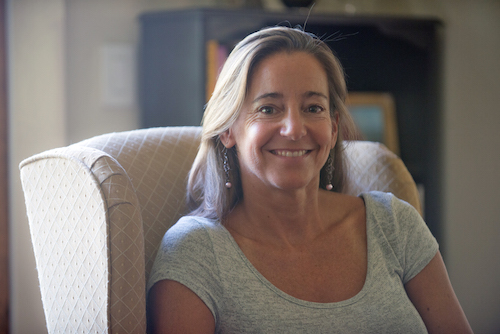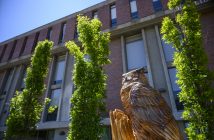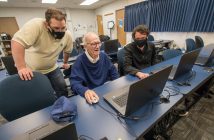When I arrived at Westfield State, I had no research skills. Each time I got a new assignment for a paper or project that required investigating published materials, I’d head straight for Ely, to the librarian on duty, and I’d say, “Help. What do I do?”
This staff person—sometimes a student far more savvy than I—would kindly work with me to determine which books, or articles on microfiche, would serve me best, and then guide me in finding them. I took it from there.
I never really did learn how to find what I needed in a library on my own, so I was very lucky that the Internet was born. So, I am especially impressed when others can delve deeply into research, following their curious passion and then publishing and promoting their findings. In reading the articles in this issue of Focus, I was duly impressed that many Westfield State students are actively involved in serious research. Not just the kind that leads into a term paper, but the kind that leads into policy change, the kind in which graduate students take part.
Anthony Rascati ’15 is one such student. He focused his senior honor thesis on the subject of drilling for oil or gas with pressurized liquid—otherwise known as fracking. He surveyed faculty and staff to get their opinions on the practice, and his goal is to report his findings to Westfield city councilors, as he also learned in his studies that there are oil reserves under the city of Westfield.
Robert Haluska ’17 is paired with Biology Professor Robin E. White, Ph.D., in researching the effects of high-fat diets on alternative energy sources of the brain. And Marjorie Rodríguez ’15 was actively engaged in a project that’s dear to her heart, called “Life Beyond Foster Care”. These students have excellent role models in their mentors on the faculty,
many of whom are also conducting research of their own. Shirley Acquah, Ph.D., researches
the impact of effective language and communication in the health environment in developing communities. The interest of Psychology Professor Joseph A. Camilleri, Ph.D., lies in aggressive behavior.
The ability to tackle this kind of intensive work has boosted students’ educations to a higher level. The new, richer climate on campus is better preparing students for graduate school and work in the communities where they will land on the next step of their journeys.




